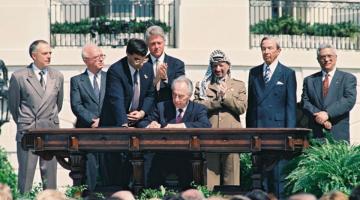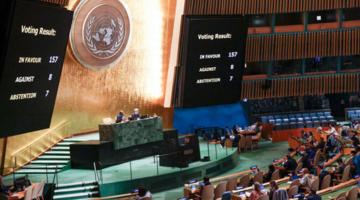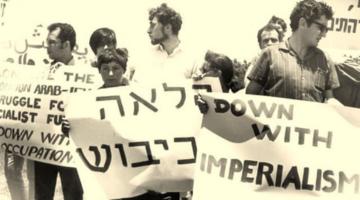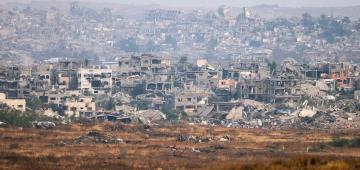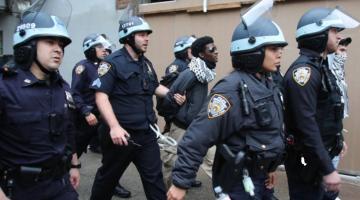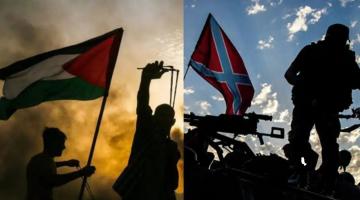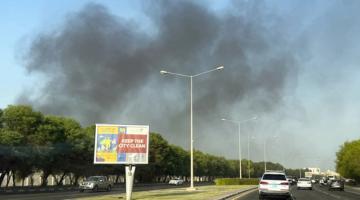“Since AFP was founded in August 1944, we have lost journalists in conflicts…but none of us remember seeing a colleague die of hunger.”
Gaza is being starved. Since March of this year, the zionists announced they would not let in food, fuel, medicine or other items. A couple of months ago, they created so-called “humanitarian” aid distribution centers which have actually been a foil for mass executions – with almost a hundred hungry people killed PER DAY as they attempt to get food. We have run out of words to describe the depravity of the white supremacist settler colonial outpost in West Asia – and its white supremacists western government backers.
Gaza is being starved – while it is continuously being bombed – to extinction. For the most part, the western media has been almost silent about, if not complicit in, this 21-month long live streamed genocide. This is why this statement from the Agence France-Presse (AFP)/Société de journalistes (SDJ) is so remarkable. We must remember that international media is barred from entering Gaza. The only ones who have worked to bear witness to this genocide are local reporters. And the zionists have assassinated more than 225 Palestinian journalists. The AFP statement brings this reality into clear relief, as it focuses on the dire plight of their on-the-ground Palestinian freelance journalists in Gaza. Those few remaining on the ground are our last reporters on the genocide. Who else will bear witness to the slaughter? Who will stop the zionists?
Without Immediate Intervention, the Last Reporters in Gaza Will Die
Agence France-Presse/Société de journalistes
AFP [Agence France-Presse] has been working with one freelance writer, three photographers, and six freelance videographers in the Gaza Strip since the departure of its staff journalists in 2024. Along with a few others, they are now the only ones reporting what is happening in the Gaza Strip. The international press has been banned from entering the territory for nearly two years. We refuse to see them die.
One of them, Bashar, has worked for AFP since 2010, first as a fixer, then as a freelance photographer, and since 2024 as the main photographer.
On Saturday, July 19, he managed to post a message on Facebook: “I no longer have the strength to work for the media. My body is thin and I can no longer work.”
Bashar, 30, works and lives in conditions equal to those of all Gaza’s, moving from one refugee camp to another as Israeli bombardments dictate. For over a year, he has lived in absolute destitution and works at enormous risk to his life. Hygiene is a major problem for him, with periods of severe intestinal illness.
Bashar has been living in the ruins of his Gaza City home since February with his mother, his four siblings, and the family of one of his brothers. Their house is devoid of amenities or comforts, except for a few cushions. On Sunday morning, he reported that his older brother had “fallen from hunger.”
Even though these journalists receive a monthly salary from AFP, there is nothing to buy, or only at exorbitant prices. The banking system has disappeared, and those who exchange money between online bank accounts and cash charge a commission of nearly 40%.
AFP no longer has the means to have a vehicle, let alone the fuel to allow its journalists to travel for their reports. Traveling by car is tantamount to running the risk of being a target for the Israeli Air Force. AFP reporters therefore travel on foot or by donkey cart.
Ahlam, for her part, survives in the south of the enclave. And she is determined to “bear witness” for as long as possible. “Every time I leave the tent to cover an event, conduct an interview, or document a story, I don’t know if I’ll come back alive.” The biggest problem, she confirms, is the lack of food and water.
We see their situation worsening. They are young, and their strength is failing them. Most no longer have the physical ability to travel the enclave to do their job. Their heartbreaking pleas for help are now daily.
Over the past few days, we have understood from their brief messages that their lives no longer depend on much and that their courage, devoted for many months to informing the whole world, will not help them survive.
We risk learning of their deaths at any moment, and it’s unbearable. This Sunday, Bashar wrote: “For the first time, I feel defeated.” Later that day, he told one of us that he thanked him “for explaining what we live daily between death and hunger.” “I wish Mr. Macron could help me get out of this hell.”
Ahlam is still standing. “I try to continue practicing my profession, to carry the voice of the people, to document the truth in the face of all attempts to silence it. Here, resistance is not a choice: it’s a necessity.”
Since AFP was founded in August 1944, we have lost journalists in conflicts, we have had wounded and prisoners in our ranks, but none of us remembers seeing a colleague die of hunger.
Source: Agence France-Presse/Société de journalistes.


